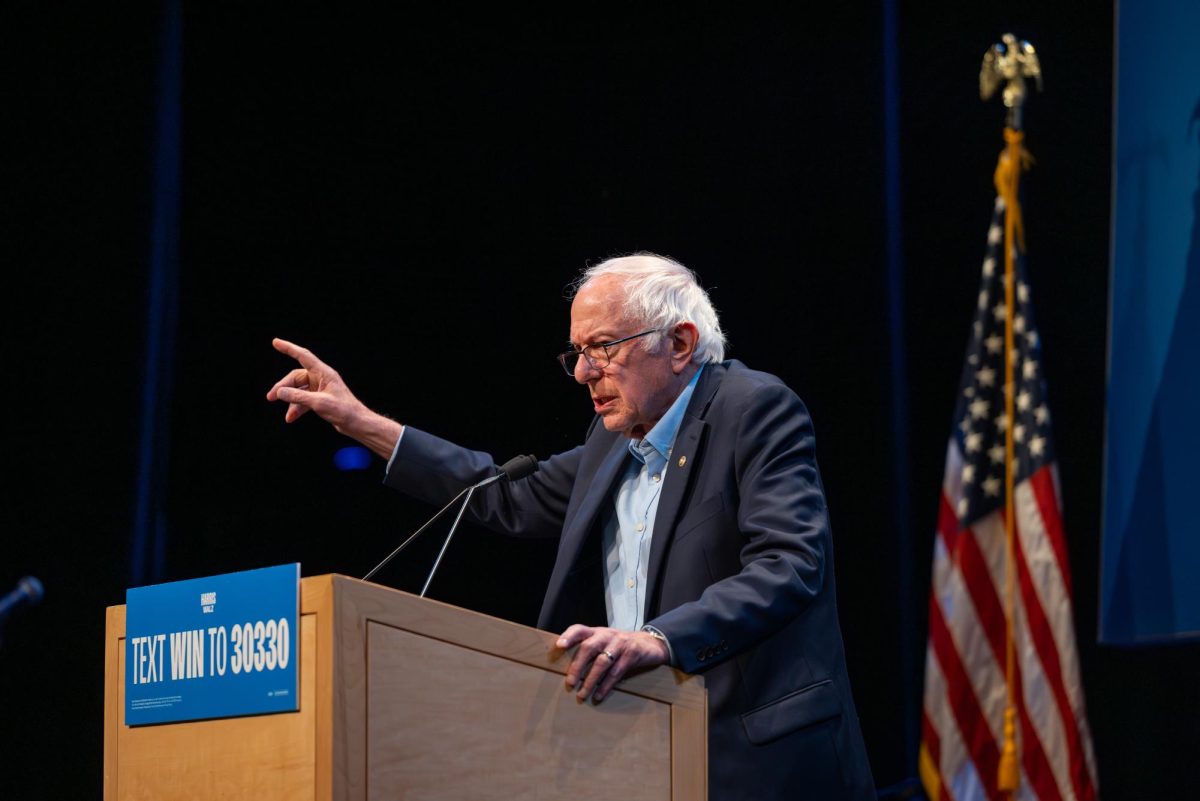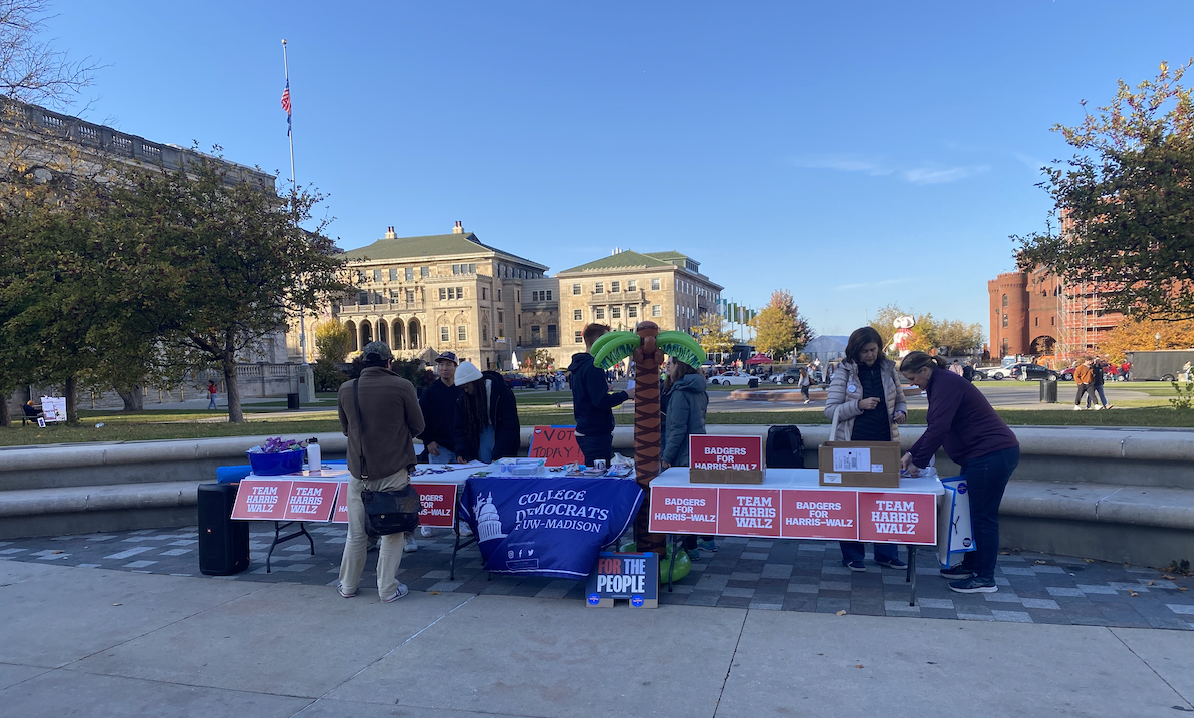NEW YORK (REUTERS) — Stocks fell Monday, clocking the longest losing streak in 19 months, as Wall Street agonized over rising debt loads at telecom companies such as WorldCom Inc. and worried recent market declines signal there is more downside on the way.
The Standard & Poor’s 500 index, a broad market gauge, fell for the sixth straight session, the longest slide since September 2000. Declines came after stocks closed last week with the biggest weekly loss in seven months on fears about Middle East turmoil and sluggish corporate profits amid a stingy business-spending environment.
“This market is as skittish as I have ever seen it,” said Bruce Turner, head of U.S. equity trading for CIBC World Markets. “People are on edge for any perception of bad news.”
The Dow Jones industrial average was down 90.85 points, or 0.92 percent, at 9,819.87, according to the latest figures. The broader S&P 500 was down 10.87 points, or 1.01 percent, at 1,065.45. The technology-laced Nasdaq Composite Index was down 6.96 points, or 0.42 percent, at 1,656.93. Three stocks fell for every two that rose on the Nasdaq, while about 17 stocks fell for every 14 that gained on the New York Stock Exchange. Trading was moderate, with about 1.81 billion shares traded on Nasdaq and about 1.26 billion exchanged on the NYSE.
Gold stocks — often seen as safe havens in turbulent times — rose again, and the American Stock Exchange gold bugs index rose 0.48 percent. Gold’s bull run shows few signs of fading as the precious metal hit two-year highs, pushed higher by a weaker U.S. dollar and renewed Middle East violence as Israeli tanks raided the West Bank city of Hebron.
Major equity gauges last week fell through key technical support levels and clocked their worst week since the first week of trading after the Sept. 11 attacks on the United States. When stocks tumble so sharply, it spells bad news near term, traders said.
“When we fell below February lows, it prompted people to think we have some more work to do on the downside,” said Todd Clark, head of listed trading for Wells Fargo Securities. “Earnings haven’t been that robust and, in the background, we’ve still got the Middle East situation, which brings the implication that oil could be expensive and crimp corporate profits.”
Telecom stocks were among the worst-performing stocks, and declines were led by telecom giant WorldCom, which fell 28 percent to an all-time low of $2.35, on fears about the company’s future and its huge debt load of about $30 billion, including several billion due in 2003 and 2004. Shares of WorldCom, the No. 2 U.S. long-distance telephone and data services company, were the most actively traded on the Nasdaq. WorldCom slashed its growth outlook April 19.
“The equity market is looking to the bond market, and the bond market is questioning whether WorldCom is viable in the long term,” said Guzman & Co. analyst Patrick Comack. There are worries that “it might not be able to refinance some of the debt which is coming due over the next couple years.”
Qwest Communications International sank 82 cents, or 14 percent, to $4.93 after a report in The Wall Street Journal Monday said Qwest is under investigation by regulators for allegedly striking secret pacts with rivals who agreed not to oppose the phone firm’s mergers or its attempts to expand its long-distance business. Later in the day, a Qwest executive said the issue was not about Qwest failing to allow competition, but whether the company should have notified the respective state public utility commissions.
The North American telecoms index lost 4.4 percent.
Tyco International Ltd. tumbled 14.6 percent — sinking to 1997 levels — as investors worried about a cash crunch at the beleaguered conglomerate after Fitch Ratings cut its ratings on Tyco’s debt, making it more expensive for Tyco to raise money.
Tyco shares slumped $2.90 to $17 and were the NYSE’s most active stock.
Still licking its wounds from a two-year stock slide, Wall Street is unwilling to make bets on firms that face a particularly tough operating environment as business spending remains curtailed, traders said. And despite a recent slew of economic data suggesting a rebound in the U.S. economy, investors are cautious.
“Pessimism still pervades the market,” said Weston Boone, a listed stock trader for Legg Mason Wood Walker Inc. “Some players are going to disappear, and you’re not going to see buyers in the stock of any firm that doesn’t have a proven track record.”
There were some bright patches amid the gloom, though. Nvidia Corp. surged 16.7 percent, or $5.06 to $35.43, after the graphics chip maker said it would restate financial results for most of the past three years and predicted first-quarter results would beat Wall Street expectations. Total restated net income will increase by about $1.3 million, the company said.
Dow component Boeing Co. jumped $2.12 to $43.63, for a gain of 5.1 percent, after Merrill Lynch raised its mid-term rating on the world’s largest airplane-maker to “strong buy” from “buy,” saying it believes “there are signs of recovery that point to up earnings for Boeing in 2004.”
A Barron’s cover story saying Boeing stood to benefit from signs of recovery in the commercial jet market also helped the stock.
Health insurer Anthem Inc. said it agreed to acquire Trigon Healthcare, Virginia’s largest managed health-care firm, for $4 billion in a stock and cash to boost its presence in the Southeast region. Anthem shed $4.05 to $66.65, while Trigon surged $14.62 to $98.87.
Support — where buyers are expected to swoop in — is at 1,650 for the Nasdaq and 1,060 for the S&P. The Dow average slipped through its support level at 9,880.
Resistance — where sellers are likely to emerge — is at 1,725 for Nasdaq, 10,000 for the Dow and 1,095 for the S&P, according to research firm Schaeffersresearch.com.
“People are shell-shocked after last week,” said Stephen Massocca, head of trading for investment bank Pacific Growth Equities. “We’ve seen some negative issues, one of which is that corporate earnings are disappointing, especially compared with the brisk economic recovery. We are getting a profitless recovery.”







